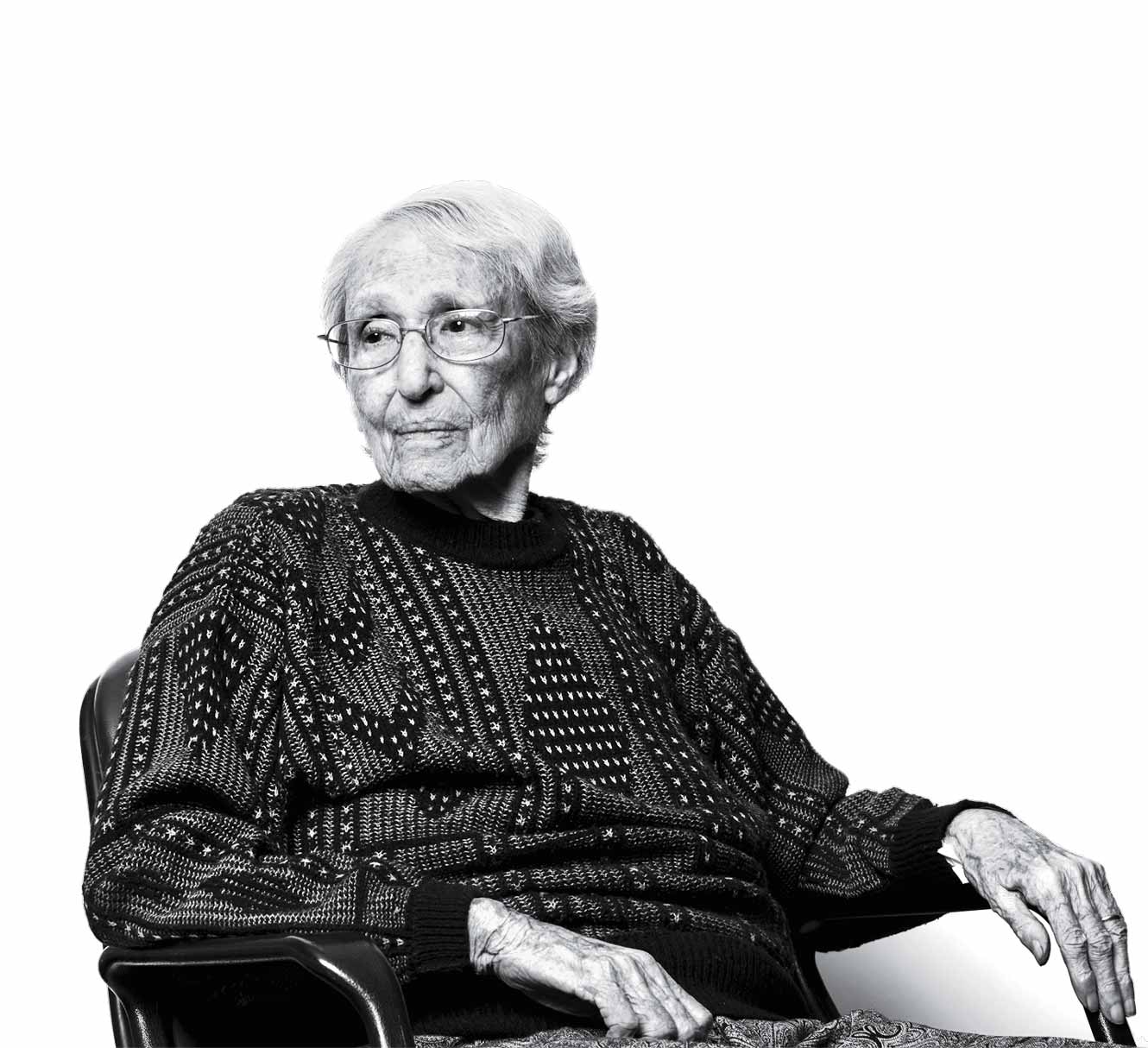
In 1934, you were Gretel Bergmann, a German Jew living safely in the U.K. Why did you go back to Germany?
I went back to Germany because my father came to [see me in] England–he could not use the telephone or write because the Nazis checked everything. He told me that I had to come back because the Nazis needed me for the 1936 Olympic team. They needed to show that Jews were not excluded, and I was the only Jewish person that had a chance. My family still lived in Germany. Had I not gone back, the Nazis would have killed them immediately.
Was it very different from the Germany you’d left?
Oh, yes. You had to get used to a whole new deal. I was a member of the Olympic team, but I was not fully accepted because I was Jewish. The other girls were quite nice, but there were some that didn’t talk to me, and I said, “To hell with you,” if you will pardon the expression. Then at the end, the [German officials] kicked me out.
What reason did they give?
They told me I wasn’t good enough, even though I had equaled the German record with a 5-ft., 3-in. (1.6 m) [high] jump the week before. They expunged that. They said in a letter, “You must have known yourself that you were not good enough.” They gave me a standing-room ticket to watch [the Berlin Games], which I did not accept.
Did you know the athlete who replaced you, Dora Ratjen?
She was my roommate [at training camp]. We got along O.K. But she was … well … a little odd. We had a huge shower room, and when we were finished training, everybody stripped and went in the shower room and cleaned up. Not Dora. Dora sneaked into a little bathroom which we were not supposed to use. Later on I found out why. She was not exactly a lady.
Do you think she was a man pretending to be a woman or a person of indeterminate gender?
We really couldn’t make a judgment. She was very masculine, but so were a lot of the other girls.
How did you get out of Germany and into the States?
There was somebody in my town [Laupheim] who moved to the U.S. and became very rich. My father was a friend of his from school days. They arranged that he would give me the affidavit I needed. I won two high-jump championships here. And one shot put.
Have you been back to Germany?
I had sworn to myself I would never, never go back to Germany and I would never, never speak a word of German, which I haven’t done. For many years I couldn’t watch the Olympics. But then the German Olympic Committee invited me to the games in Atlanta, and they named a stadium after me in my hometown. So I went back.
There are actually two stadiums in Germany that have your name on them. You’re probably more famous now than if you had competed. Does that make up for what happened to you?
It can never make up for it. But I realized after a while that these younger people had nothing to do with this whole thing. They also had to do what they were told. Our best friend used to sneak into our house at 11 o’clock at night because he couldn’t come in and visit us officially. And when we saw each other in the street, we didn’t say hello to each other. And that’s the way it was. My friend from next door never looked at me again. They couldn’t afford to talk to me.
You were married to Bruno, another Jewish escapee from Germany, for 75 years. Do you have any secrets for how to have a long marriage?
No. Just be a nice person. And be married to a guy who looks like my husband, the best merchandise ever to come into the United States.
In April you turned 100. Are you living so long to take revenge on the Nazis?
I don’t even think about it that much. I get up in the morning–“Hey, I’m still here”–you know? I go to sleep at night thinking, O.K., I hope I wake up. We were supposed to have a birthday party, but during the night I fell out of bed and hurt myself, so we called the party off. Ha! Saved a lot of money!
–BELINDA LUSCOMBE
More Must-Reads From TIME
- The 100 Most Influential People of 2024
- The Revolution of Yulia Navalnaya
- 6 Compliments That Land Every Time
- What's the Deal With the Bitcoin Halving?
- If You're Dating Right Now , You're Brave: Column
- The AI That Could Heal a Divided Internet
- Fallout Is a Brilliant Model for the Future of Video Game Adaptations
- Want Weekly Recs on What to Watch, Read, and More? Sign Up for Worth Your Time
Contact us at letters@time.com